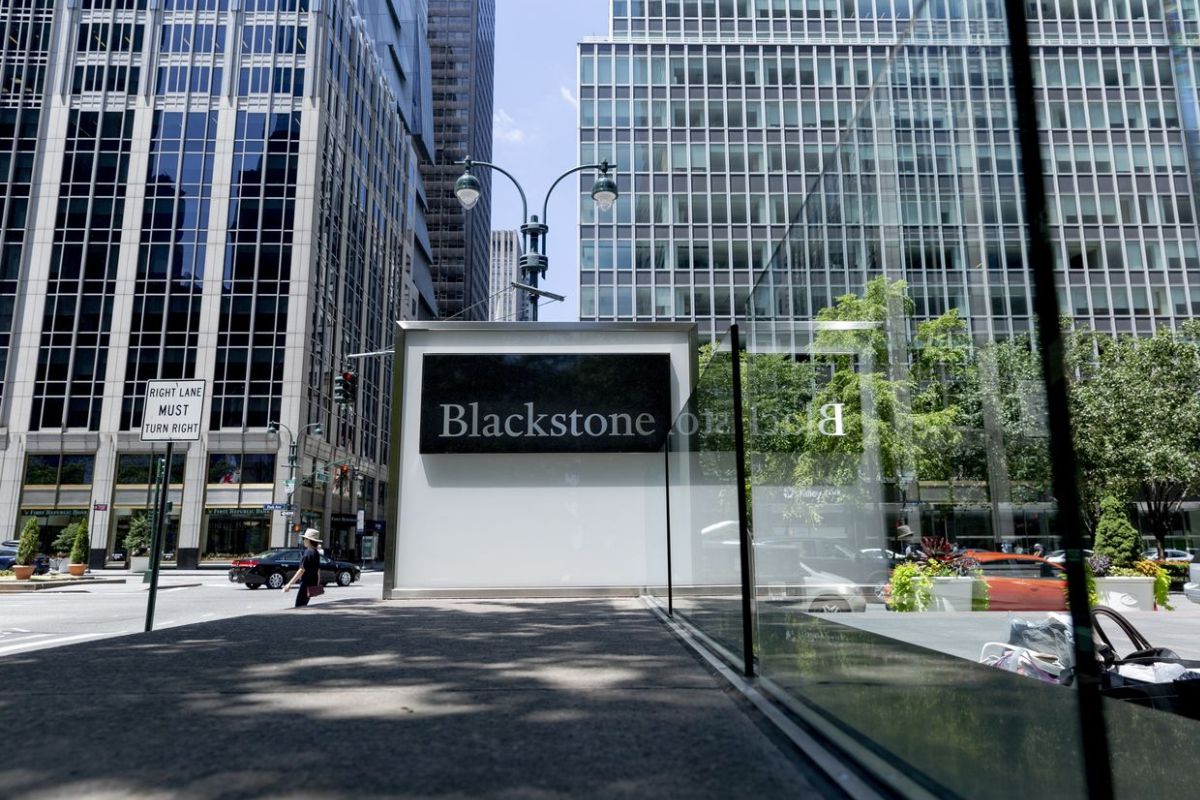Blackstone Inc. Worked behind the scene to make the transaction more appealing still before putting a portfolio of student dorms up for sale
Rise of Blackstone
First, the company offered purchasers the chance to assume more than $800 million in debt, which had previously been arranged at favourable interest rates.
Additionally, Blackstone offered below-market financing after bids were received, increasing the overall package value to almost $1 billion.
In the end, KKR & Co. agreed to purchase the assets from the Blackstone Real Estate Income Trust, which is valued at $59 billion.
President Jon Gray revealed the sale just in time for a pivotal April shareholder call, during which he listed the 7% premium BREIT received for the dorm sale as one of the “inconvenient facts for our critics.”
Five sources with knowledge of the private negotiations’ details highlight the extent to which real estate owners are utilizing their financial toolkits to facilitate sales and fetch the highest prices possible in the current commercial real estate market.
Large asset managers are searching for financial strategies to close agreements and raise money throughout the business as a result of the sharp increase in interest rates that has put pressure on returns.
In BREIT’s history this is the only time that seller financing has occurred. It gives up the right to receive full payment up front in these transactions, turning it into a kind of lender.
These financings also tend to facilitate bid raising by buyers, as they are more frequently utilized for assets that are having difficulties.
The business has hinted that it is preparing for a possible turning point: according to President Jon Gray real estate values are “bottoming.” Blackstone’s real estate reputation was largely built on seizing fast-growing sectors, and the company has been keen to have its vast REIT find ways to profit from one of the worst real estate markets in over ten years.
Act of Balancing
Due to rising borrowing rates and declining property values, investors’ perceptions of real estate have gotten worse, making the task even more challenging. The capacity to allow investors to take out cash up to a certain amount was one of BREIT’s key selling points. However, since the end of 2022 redemption requests have continuously outpaced revenue, and the firm has permitted. investors to withdraw more than its monthly limits in May.
BREIT has sold $20 billion in real estate since 2022 at a price greater than its marks; the bulk of these sales, according to the firm, did not include transferable debt that was already in place.
Blackstone stated that BREIT investors benefited from the KKR sale, adding that the company received many offers that exceeded its benchmark despite the absence of seller financing.
Blackstone stated in an email that providing good performance is entirely consistent with offering real estate at competitive pricing.
BREIT has sold $20 billion in real estate since 2022 at a price greater than its marks; the bulk of these sales, according to the firm, did not include transferable debt that was already in place.
Blackstone described the KKR transaction as a success for BREIT investors, noting that the firm received many offers that exceeded its expectations even without seller financing.
“Selling real estate at great prices is entirely consistent with delivering strong performance,” Blackstone explained in an emailed statement.
BREIT has sold $20 billion of real estate at a premium to its marks since 2022, with the bulk of those transactions without in-place transferable debt, according to the statement.
“Blackstone had a smart capital structure in place on this portfolio, which benefited both parties and allowed us to achieve a win-win outcome,” a KKR spokeswoman said in an emailed statement.
Tough market.
REIT investors have been nervous since borrowing costs began to rise. BREIT limited withdrawals for 15 months before allowing investors to withdraw funds freely in February. However, a prominent rival, Starwood Real Estate Income Trust, tightened redemption limits last month, with billionaire Barry Sternlicht promising that investors will benefit in the long run.
Such a liquidity management strategy runs the danger of causing panic. Even in today’s harsh market, REITs like Blackstone with in-demand assets, such as student housing, may generate income from sales. Seller finance, for example, can help in this situation.
Seller finance, which was formerly utilized to offload the worst-hit properties such as offices, is now becoming a popular method of facilitating sales.
“You can make a deal work that otherwise appears to be stalled or seems to be undoable,” said Nicole Schmidt, managing partner of investment bank Oberon Securities. “It’s to help facilitate getting deals done, and getting them done much quicker.”
However, there are downsides. Blackstone is losing the possibility for BREIT to get all deal proceeds up front. It also lends money at lower interest rates than it could earn from other investments.
According to persons acquainted with the case, BREIT is providing financing for the student residence through preferred equity at an annual interest rate of 6.5%, which is lower than what a bank charges today.
Blackstone analyzed the expense of holding seller financing against the profits it expected to achieve for investors from the transaction — approximately $500 million — and determined that the gains were worthwhile.
“More and more of that below-market financing is being offered in the market to juice the last dollar of the purchase price,” Josh Zegen, cofounder of Madison Realty Capital, said of various financing options entering the market widely. He declined to comment on the BREIT.
“What are the implications of that?” Money is not returning to the system, and investors are not receiving returns as rapidly as expected.”
Different Strategies
BREIT, which does not trade on exchanges and can block redemptions above specific levels, is keenly scrutinized to see if it would keep its cash and valuations amid one of the most difficult periods in real estate since 2008. BREIT, the largest trust of its kind has made significant investments in buildings ranging from data centers to warehouses and residences.
However, the trust has been grappling with redemption pressure for several months. BREIT has also transitioned from a net buyer in 2022 to a net seller in 2023, receiving a cash infusion from the University of California along the way. The corporation claims that selling real estate in “lower growth” industries affords them flexibility.
Other competitors have taken various tactics to supporting their property trusts. KKR invested $50 million in one of its largest property trusts and committed to supporting its net asset value per share. The trust stated that it hoped to persuade investors to stay once the commercial-property recovery began to take effect.
Starwood’s decision to further restrict redemptions from SREIT served as a reminder that similar REITs might utilize a variety of levers to control cash. The repercussions from that ruling spread to BREIT where investors increased their requests to withdraw funds. The Blackstone trust met all of the withdrawal requests in May, exceeding the regular 2% limit. Blackstone stated that the board made the decision due to the fund’s liquidity and broad trend of falling redemptions.
According to a person familiar with the subject who asked not to be identified because the material is confidential, Blackstone officials are concerned that imposing the rules again could harm investor confidence. According to sources, the business is also concerned that individuals would mistake BREIT for SREIT.
Blackstone stated that BREIT’s structure is working as intended, and the trust has no intentions to amend its share repurchase program. A Starwood spokesman did not reply to calls for comment.
Stepping Up Deals
Optics matter in the world of billion-dollar REITs for retail investors, such as those offered by Brookfield Asset Management and Ares Management Corp.
BREIT, which has $7.5 billion in immediate liquidity, has avoided using its line of credit. Last year, the trust increased its sales to offload properties, which increased cash flow. Net sales revenue has more than doubled to $7.4 billion. New investments declined by a fraction of a percentage point from the previous year’s $35.9 billion.
Blackstone has monitored BREIT share trades on secondary exchanges. During the period that BREIT had to implement its withdrawal limits, it took investors four months on average to receive practically all of the money they wanted to withdraw. Some investors resorted to other ways to get out, even it meant paying a price.
When BREIT shares began selling at a 15% discount on a startup platform called Lodas Markets in 2023, Blackstone executives expressed concern to the company.
“They were genuinely concerned about the perception of how BREIT was valued,” stated Lodas CEO Brian King. Blackstone had previously disrupted a BREIT deal and then made it apparent that transfers would be limited to its largest share class, he claimed.
When Lodas recommended measures to speed up the trades earlier this year, Blackstone insisted on sticking to a process of checking off on each phase of the transaction.
This effectively hampered the settlement of deals for multiple BREIT share classes, King explained. The platform settles such transactions for many other nontraded funds in a few days.
Despite having consumers prepared to acquire $1 billion in BREIT shares, Lodas only executed $10 million in deals due to the method Blackstone implemented, according to King.
Blackstone has maintained that it did not impede trades, was following conventional procedures, and allowed shares to be traded as long as they were converted to the largest share class. It claimed that it “facilitated the onboarding” of a significant share class and treated Lodas’ custodian as it did others.
Read more.
Dow Jones Futures Fall: Tesla shareholders approved a massive pay deal for Elon Musk
Source
bloomberg

Becky Scott is a seasoned finance journalist specializing in providing expert guidance on financial news and trends. With a career dedicated to demystifying complex economic topics, Becky offers clear and insightful analysis that empowers readers to navigate the world of finance with confidence. Her articles are known for their practical advice and thorough research, aimed at helping individuals and businesses make informed financial decisions. Becky Scott’s passion for financial literacy is evident in her commitment to delivering accurate and accessible information that resonates with a wide audience.







